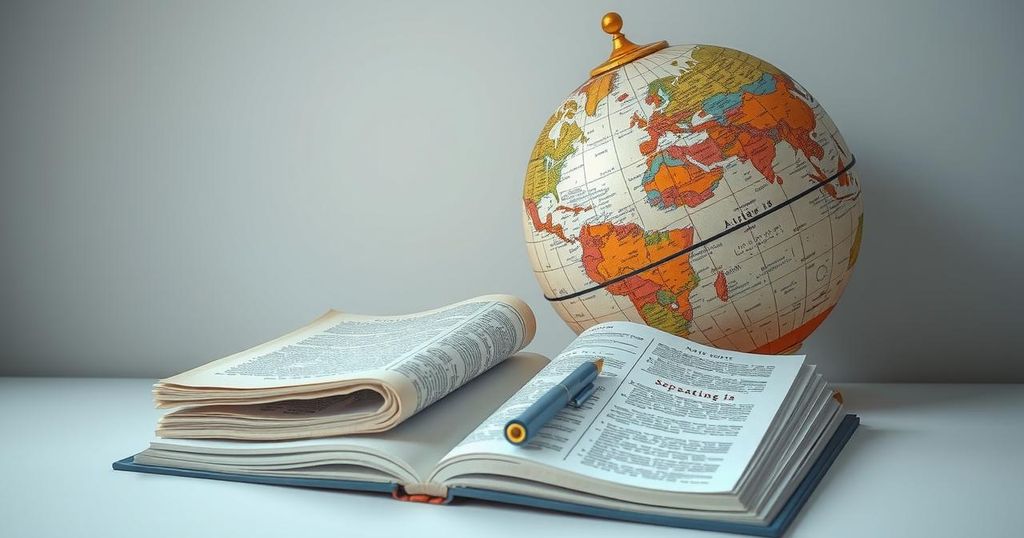On February 4, 2025, Iran experiences escalating unrest, particularly among the Baluch population responding to state violence. Warnings of uprisings emerge from within the regime, reflecting deep public dissatisfaction. Concurrently, Iran is reportedly advancing a nuclear weapons program, raising global security concerns. Women’s participation in protests signifies a strong push for justice amidst economic hardship, while international rallies advocate for political prisoners ahead of the Free Iran Rally in Paris.
On February 4, 2025, significant unrest continues to unfold in Iran, particularly among the Baluch citizenry reacting violently to state oppression. The regime’s execution of young Baluch individuals and the subsequent destruction of homes in cities such as Zahedan have ignited fiery protests by the youth. On February 1, rebellious factions targeted suppression centers, further signaling intense opposition to the regime’s actions.
In an alarming statement, Naser Makarem Shirazi, a cleric and member of the Assembly of Experts, warned of potential uprisings. His remarks highlighted escalating public dissatisfaction due to severe economic hardships and degrading governance, suggesting that the integrity of the regime is increasingly at risk amidst widespread unrest.
Reports have emerged indicating that Iran is advancing a nuclear weapons program inspired by North Korean designs. According to the National Council of Resistance of Iran, Tehran is racing to create a warhead capable of reaching Europe, aiming to keep the international community at bay while it fulfills its nuclear ambitions.
The month of February marks significant historical importance for Iran, as it resonates with the 1979 revolution which led to the Shah’s ousting. It serves as a reminder of the country’s yearning for democratic governance, as the initial revolution drew support from diverse groups, not solely the ruling theocrats.
Iran’s mining sector currently faces significant challenges, with 65% of mines non-operational due to mismanagement, environmental issues, and lack of investment. To revive this vital sector, addressing financial constraints and fostering investment from the private sector are essential, given its potential to drive economic growth.
Women have taken a pivotal role in the protests sweeping across Iran in January 2025, leading demonstrations that demand justice and economic relief. Their participation has been a defining feature in the face of pervasive repression, galvanizing movements in major cities and various provinces.
The country’s healthcare system is under severe stress, with warnings of a potential shortage of medical professionals due to high rates of physician migration, dissatisfaction, and burnout. Recent statistics reveal numerous vacant residency positions, a trend attributed to escalating pressures faced by healthcare workers in Iran.
Supporters of the People’s Mojahedin Organization of Iran (PMOI/MEK) are actively voicing their opposition to the death penalties facing political prisoners, with demonstrations held in cities like Vancouver, Malmö, and Copenhagen. These rallies emphasize calls for the immediate release of political detainees amidst concerns for their safety and rights.
As the February 8, 2025, Free Iran Rally approaches in Paris, global demonstrations are being organized to urge attendance at this significant event. This rally represents a push for freedom, democracy, and the respect of human rights in Iran, rallying international support for the Iranian resistance against tyranny.
The ongoing situation in Iran illustrates a deepening crisis marked by governmental oppression and widespread discontent among various demographic groups, particularly the Baluch people. They have faced systemic injustices, including violent governmental crackdowns and displacement from their homes. Public dissatisfaction, fueled by economic woes and ineffective governance, has prompted calls for uprisings that could threaten the regime’s stability. Concurrently, alarming revelations regarding Iran’s nuclear ambitions raise serious international security concerns, particularly among European nations. As protests continue, civil society’s activism remains robust, notably led by Iranian women who are increasingly vocal in their demands for democratic reforms and social justice.
The unfolding events in Iran point to a significant societal crisis characterized by violent repression, economic despair, and growing calls for democratic governance. The discontent among the population, especially the Baluch community, coupled with warnings from regime insiders about potential uprisings, reflects a critical juncture for the Iranian ruling class. Additionally, the international community’s focus on Iran’s nuclear aspirations underscores the broader implications of Iran’s internal turmoil for global security. With persistent protests and international advocacy for political prisoners, the momentum for change is palpable as February 2025 unfolds.
Original Source: www.ncr-iran.org






